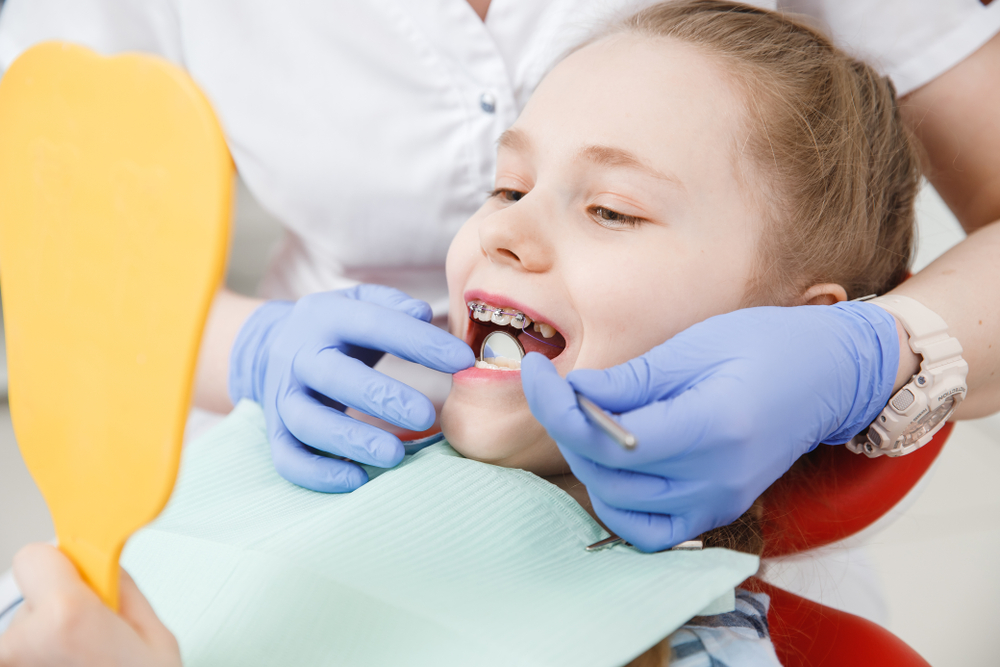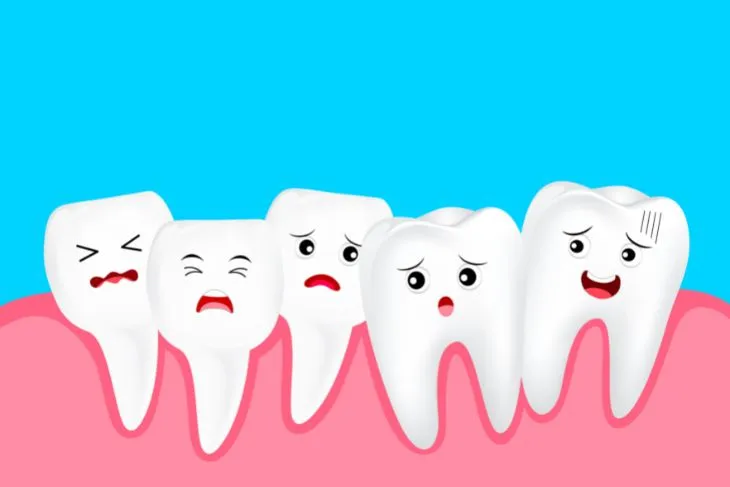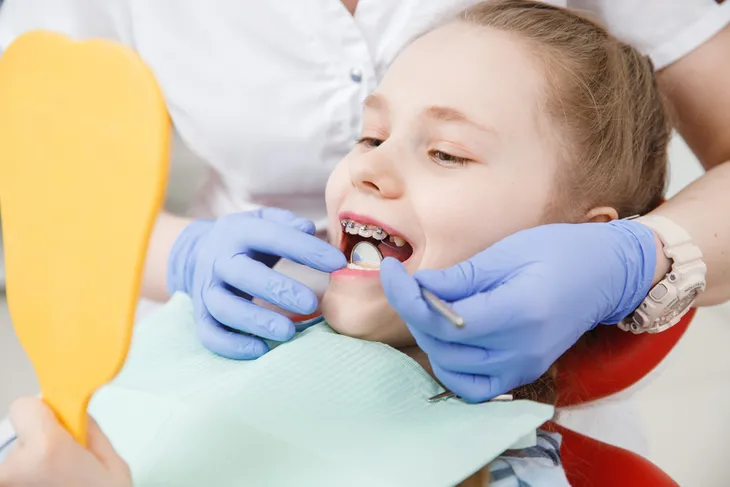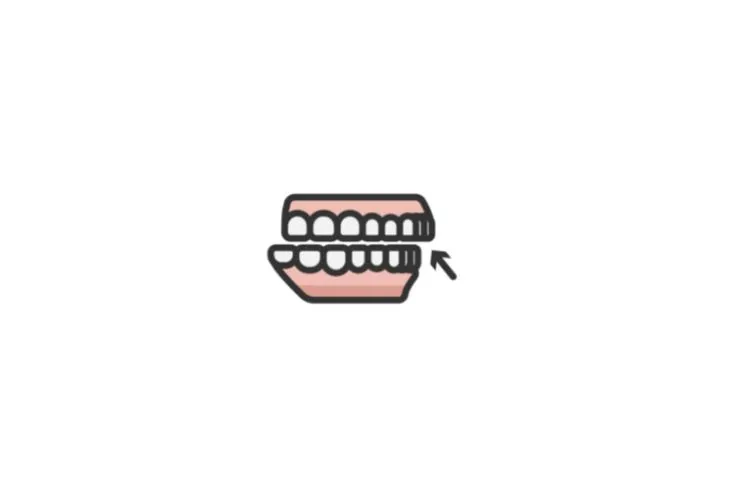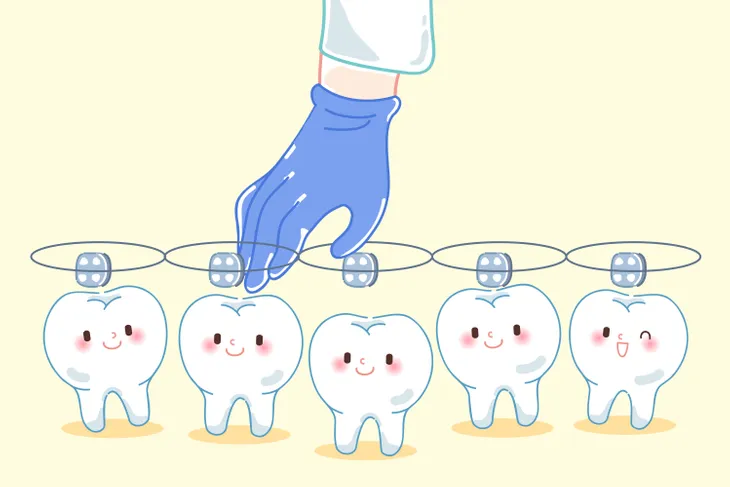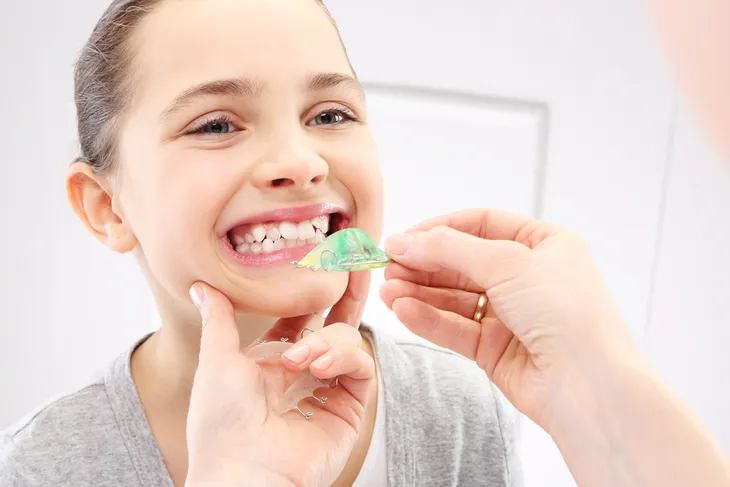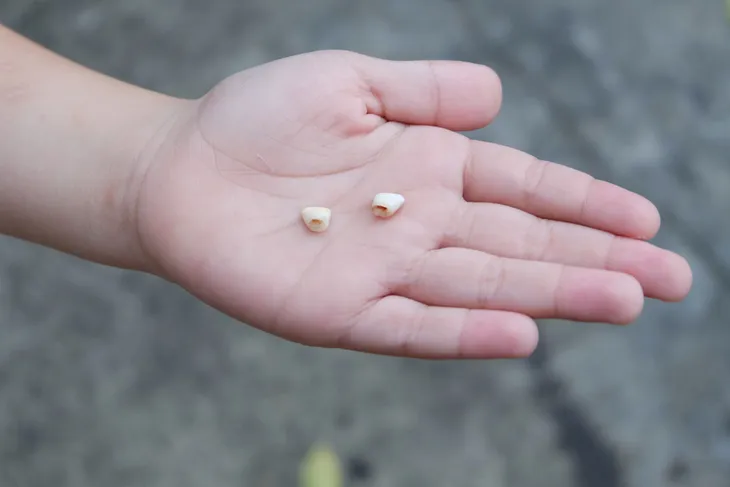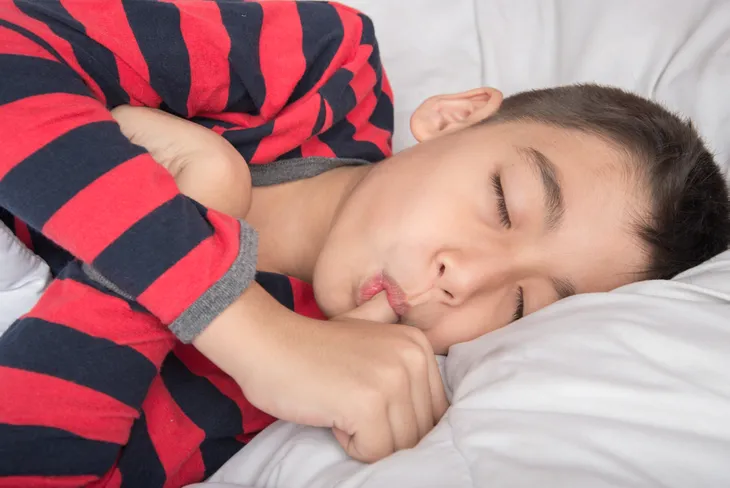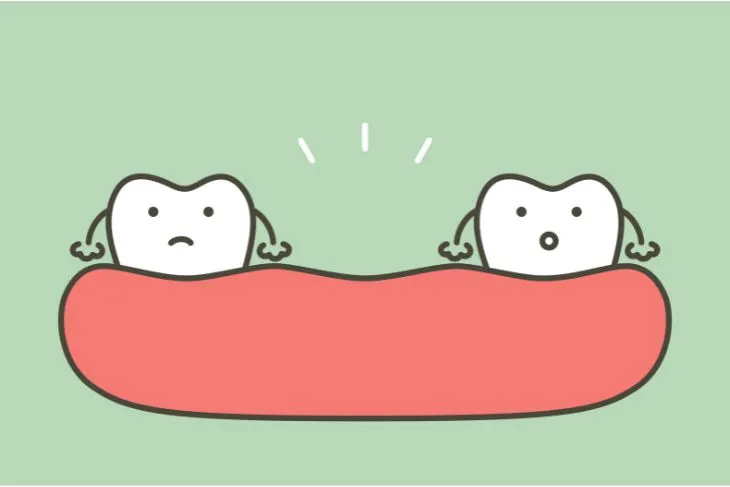- As parents, we want our kids to be confident and comfortable with their smile which is why many choose (or have) to provide their kids with braces.
- Some common problems that require orthodontics are crowding, spacing, over or underbite, abnormal bite, and the list goes on.
- Things that may cause a child to need braces are using a pacifier for a prolonged period of time, mouth breathing, thumb sucking, and losing their baby teeth too early.
When we’re young, our smile means everything. It impacts how confidence, our communication, how we look in photos, and even how open we are with our friends! As a parents we all want to help our children develop as beautiful of a smile as possible.
The key to doing that starts with identifying when your child needs braces. This requires a visit to the dentist and orthodontist, but how do we know when to inquire about braces? It can be tricky, so to help you out, we’ve compiled a list of the 12 signs that could indicate your child needs braces…
Crowding
One of the most common signs that your child needs braces is teeth crowding. As the name implies, teeth crowding is when your child’s teeth are competing for room in their mouth due to a lack of space. Depending on the severity of crowding and how long it takes place, it can result in your child having crooked, misplaced teeth.
Left untreated, crowding in your child’s mouth can get worse as they get older, making it more and more difficult to complete even basic tasks like brushing their teeth or flossing. In severe cases, crowding can make it impossible to reach certain parts of their mouth, which can lead to things like bad breath, gum disease, tooth decay, and even bone loss around the unreachable areas. Apart from hygiene, crowded teeth can also result in your child developing a lisp.
Abnormal Bites
When your child has their jaw closed, there are four abnormal bites to watch out for. These abnormal bites can indicate the need for braces (or more significant orthodontic treatment).
These abnormal bites include:
- Overbite
- Underbite
- Crossbite
- Openbite
Overbite
An overbite is when their front teeth extend beyond and/or overlap vertically and horizontally with their bottom teeth. The main issue, aside from dental treatments like crowns and fillings not lasting as long, is an increased risk of injury to the front teeth (because they take the first impact from injury).
There is also a version of an overbite called an overjet, where instead of your child’s teeth overlapping their bottom teeth entirely, their top teeth simply protrude out over their bottom teeth. This presents similar risks, such as your child’s front teeth taking the first impact from falls.
Underbite
An underbite is the opposite of an overbite and consists of your child’s upper front teeth going completely behind their lower front teeth when they bite down. Underbites are commonly the result of irregular jaw size and can lead to difficulty biting and chewing, as well as changes and imbalances in your child’s facial appearance if left untreated.
Crossbite
If your child’s bottom and top teeth on the sides of their mouth don’t line up when they bite down, they likely have a crossbite. A crossbite can lead to all sorts of complications, including excessive wearing of the teeth, increased gum recession, and even abnormal jaw growth due to one side of your mouth being engaged more than the other.
Openbite
The last kind of abnormal bite is the openbite. If your child’s upper and lower front teeth don’t touch when they bite down, they likely have an openbite. While open bites can be genetic, they can also be the result of your child using a pacifier or sucking their thumb for prolonged periods of time. An openbite can make it difficult for your child to eat properly and can also lead to speech problems like lisps.
Early or Late Loss of Baby Teeth
If your child loses their baby teeth too early or too late, it could result in them needing braces later in life. Losing baby teeth too early can give other teeth time to move into empty spaces they don’t belong in, and losing baby teeth too late can also lead to similar alignment issues.
Misalignment of Jaw Position
As touched on above, any misalignment of the jaw can lead to all sorts of abnormal biting patterns in your child’s mouth. Although fixing jaw alignment is usually a whole other process in addition to your child needing braces, being aware of your child’s jaw positioning can help you understand whether or not braces will be needed down the road.
Prolonged Thumb-Sucking
If your child continues sucking their thumb beyond the normal ages of two to four, it could lead to the need for braces. Prolonged thumb-sucking can push your child’s teeth, particularly their front teeth, outward and out of alignment. In severe cases, thumb-sucking can also negatively affect the development of your child’s jaw bone, which in itself can cause all sorts of alignment issues.
Mouth Breathing
Mouth breathing may seem harmless, but due to it causing your child to have their mouth open more than usual, it can actually affect the development of their teeth. When your child’s tongue can’t sit on the roof of their mouth, as happens when mouth breathing, your child can develop a longer face with narrow jaws. This can result in less space for adult teeth to grow, which can lead to crowding and a host of other issues.
Too Much Space Between Teeth
The opposite of crowded teeth, your child could have too much space between their teeth (think Madonna’s famed gap tooth) which is another obvious sign that your child needs braces. Fortunately, minus any other more serious teeth-related issues, too much space between teeth is easily treatable with braces or even Invisalign.
Mouth or Jaw Pain
Not all signs that your child needs braces will be visibly obvious. Sometimes, signs can be more internal, such as mouth or jaw pain. This is why if you notice your child experiencing mouth or jaw pain regularly, it’s important to consult an orthodontist or dentist to uncover any underlying issues.
Trouble Chewing or Biting
While trouble eating might just be regular child-like behavior, it could also be symptomatic of your child experiencing teeth or alignment issues. More specifically, if you notice your child having trouble chewing or biting, or irregularly biting their tongue or the insides of their cheeks, it could be due to an underlying issue that might need braces to fix.
Problems with Speech
Speech problems can be the result of a lot of different things, but one of those things is misaligned teeth. If your child has difficulty pronouncing certain sounds or words or is generally struggling with speech, a visit to an orthodontist or speech pathologist might uncover the need for braces to fix the problem.
Are Your Child’s Teeth Difficult to Clean?
Instead of looking specifically for such things as an overbite, underbite, or crowding, looking more generally for such things as difficulty cleaning your child’s teeth can be more helpful in uncovering the need for braces. For example, if your child’s teeth are positioned or overlapping in a way that makes them difficult to be cleaned, your child might need braces.
